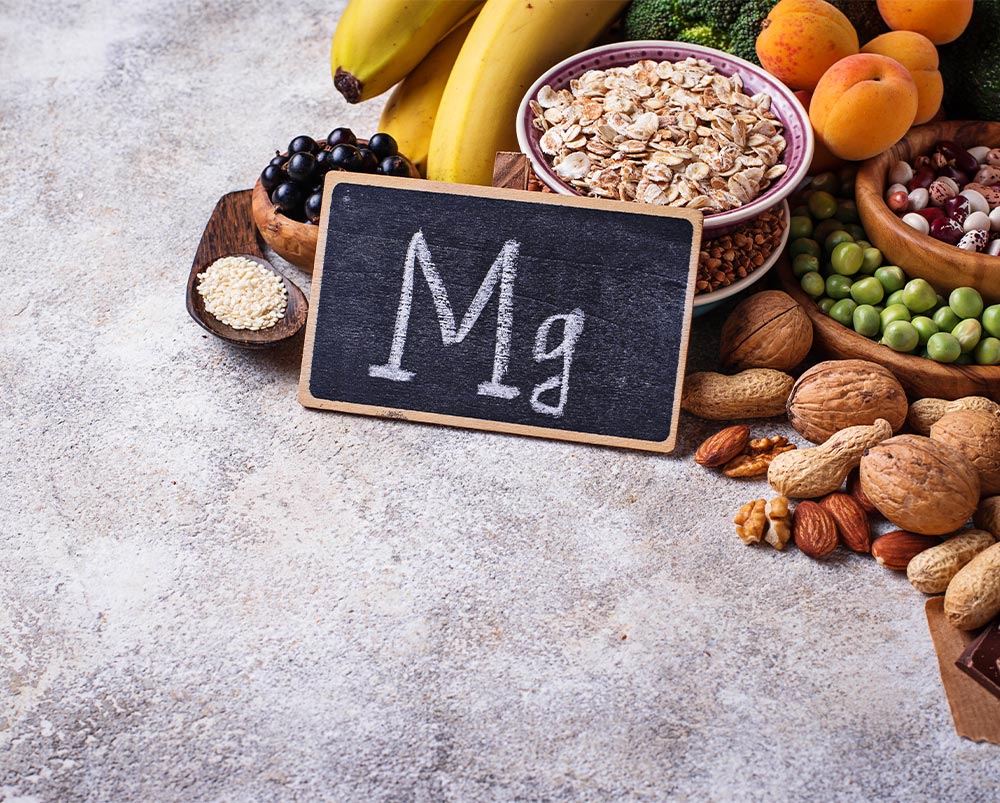Chemical Structure and Function of Pure Creatine Monohydrate
Pure Creatine Monohydrate is a naturally occurring organic acid found in the body, primarily in the muscles and brain. It is composed of three amino acids: arginine, glycine, and methionine. The chemical formula for pure creatine monohydrate is C4H9N3O2.H2O.
The primary function of Pure creatine monohydrate in the body is as an energy source for muscle contraction. When muscles contract, they use adenosine triphosphate (ATP) as fuel. However, ATP is quickly depleted during intense exercise or activity. Pure Creatine monohydrate helps by replenishing ATP stores, allowing the muscles to continue to contract efficiently and effectively.
Pure Creatine monohydrate has also been shown to have benefits for cognitive function and neurological health. It may improve memory, attention, and overall brain function. Additionally, it has been studied for its potential role in treating certain neurological conditions such as Parkinson's disease and depression.

Sources of Natural Creatine
Here are some natural sources:
1. Red meat: Beef, pork, and other types of red meat. In fact, some studies suggest that consuming red meat may be the most effective way to increase creatine levels in the body.
2. Fish: Certain types of fish, such as salmon and tuna, are also good sources. These fish contain high levels of omega-3 fatty acids, which are important for overall health, as well as for brain and heart function.
3. Eggs: Eggs are a great source of protein, and they also contain small amounts. Eating eggs can provide an additional boost to your body's creatine levels.
4. Dairy: Milk, cheese, and yoghurt all contain small amounts of creatine, as well as other essential nutrients such as calcium and vitamin D.
5. Vegetables: While not as rich as meats or fish, some vegetables such as spinach and beets contain small amounts. Incorporating these vegetables into your diet can provide a variety of health benefits in addition to a boost in creatine levels.
It is important to note that the amount of creatine found in these sources is relatively small compared to what can be obtained through supplementation. However, incorporating these foods into your diet can provide additional sports nutrition benefits beyond just increasing your body's creatine levels.
Benefits of Pure Creatine Monohydrate
There are numerous benefits of creatine supplement, so let's discuss the main ones:
Increased Muscle Strength and Power
When we perform high-intensity exercise, our muscles rely on a compound called adenosine triphosphate (ATP) for energy. Unfortunately, ATP stores in the muscles are limited and quickly depleted during intense exercise.
This is where creatine comes in. When we consume creatine supplements, it gets converted into phosphocreatine and stored in our muscle cells. During high-intensity exercise, phosphocreatine helps to replenish ATP, allowing the muscles to maintain energy and perform at a higher level for longer periods.
Moreover, it also promotes protein synthesis by increasing the levels of insulin-like growth factor 1 (IGF-1), which stimulates muscle growth and repair. This leads to an increase in lean muscle mass, further contributing to improved strength and power.
Several studies have shown that supplementation can lead to significant increases in muscle strength and power, particularly in activities that require short bursts of energy like weightlifting and sprinting. Additionally, creatine supplementation has also been linked to improved muscle endurance, muscle size, and overall athletic performance.
It is important to note that while creatine supplements can be effective in improving muscle strength and power, they are not a magic solution. Consistent training and a well-balanced diet are still essential components of any successful fitness regimen.

Enhanced Endurance and Performance
During exercise, the body's primary source of energy is adenosine triphosphate (ATP). Creatine helps to increase the amount of available ATP, allowing for more energy production during exercise. This boost in energy can lead to increased endurance and performance.
Additionally, supplementation has been shown to increase muscle mass and strength. This additional muscle mass and strength allows athletes to perform at a higher level for longer periods of time, ultimately leading to enhanced endurance and performance.
Improved Recovery Post-Workout
When you engage in strenuous exercise, your muscles undergo micro-tears which cause soreness and inflammation. Creatine supplementation has been found to decrease these markers of muscle damage, leading to quicker recovery times between workouts. This means you can return to exercising at the same level of intensity sooner without risking injury or compromising your performance.
It also plays a role in promoting muscle protein synthesis, or the process by which your body builds new muscle tissue. This means that by supplementing with creatine, you may be able to build muscle at a faster rate than without supplementation.

Who Should Take Pure Creatine Monohydrate?
Pure creatine monohydrate is the most widely studied form of creatine, and it has been shown to be safe and effective for people looking to gain muscle mass, strength, and endurance. However, not everyone needs or should take creatine.
Here are some factors to consider when deciding if pure creatine monohydrate is right for you:
1. Fitness Goals - If your goal is to increase muscle mass, improve strength and endurance, then pure creatine monohydrate can be beneficial.
2. Age - it is safe for adults but for younger individuals, it is advised to seek medical consultation before taking any supplements.
3. Dietary restrictions - Vegetarians and vegans may have lower levels in their bodies since they do not consume meat or fish. Therefore, supplementing with pure creatine monohydrate may be particularly helpful for them.
4. Medical History - People with kidney problems should avoid taking these supplements as it may cause further damage to their kidneys. Additionally, individuals with a history of liver disease or diabetes should also consult with their healthcare provider.
5. Training Intensity - Individuals who engage in high-intensity training, such as weightlifting or sprinting, can benefit from supplementing with pure creatine monohydrate.
6. Budget - Pure creatine monohydrate is generally affordable and widely available at health stores, but it may not fit everyone's budget.
How to Take Pure Creatine Monohydrate?
Dosage and Timing
Recommended Dose:
The recommended creatine dosage varies depending on the individual's body weight. The general guideline is to take 0.3 grams of creatine per kg of body weight per day. This means that a person who weighs 70 kilograms would take approximately 21 grams per day (70 x 0.3 = 21). It is important to note that taking more than the recommended dosage does not necessarily lead to better results, and may even have negative side effects such as gastrointestinal issues or kidney damage.

Timing:
The timing is also crucial for maximum benefits. Experts recommend taking it immediately after a workout when the muscles are primed for nutrient uptake. Another option is to take it pre workout, approximately 30 minutes before exercising. This allows the body time to absorb the supplement and use it during the workout.
Additionally, it is important to maintain consistency in both the dosage and timing of creatine supplementation. This means taking it at the same time each day, every day, in order to maintain optimal levels in the body.
Loading and Maintenance Phases
1) Loading Phase:
During the loading phase, a higher creatine dose is consumed in order to saturate the muscles. This typically lasts for 5-7 days, during which 20-25 grams are consumed daily; usually split into 4-5 doses. It is important to note that this phase can cause mild gastrointestinal discomfort and an increase in water-weight as the muscles retain more water to support the increased creatine levels. This is why it is essential to drink plenty of water during this phase to avoid dehydration.
2) Maintenance Phase:
After the loading phase, the maintenance phase begins. During this phase, a much smaller amount of creatine (usually 3-5 grams per day) is taken to maintain the elevated levels in the muscles. The duration of this phase can vary depending on individual goals, but typically lasts for several weeks or months.
It is important to cycle on and off of, taking breaks from its use every few months to avoid potential side effects and allow the body to regulate its natural creatine production.

Potential Side Effects of best creatine monohydrate UK?
While it is generally considered safe when taken in recommended doses, there are potential side effects that users should be aware of:
1. Gastrointestinal distress: Some people may experience digestive issues like diarrhea, nausea, bloating, or cramping.
2. Dehydration: Creatine pulls water into the muscles, which can lead to dehydration if you don't drink enough water.
3. Weight gain: Creatine can cause an increase in water weight due to the water retention in muscles. This can lead to a temporary increase in body weight.
4. Kidney damage: There is concern that creatine may cause kidney damage or increase the risk of kidney disease, particularly among people with pre-existing kidney issues.
5. Liver damage: Some studies have suggested that long-term use of high creatine doses may cause liver damage or impair liver function.
6. Muscle cramping: In rare cases, some individuals have reported muscle cramps or strains when taking creatine supplements.
7. Mood changes:There have been anecdotal reports causing mood changes, including irritability and anxiety, although more research is needed to determine if these effects are directly caused by creatine or other factors.
It is important to note that the potential side effects of pure creatine monohydrate are generally mild and occur infrequently. However, as with any supplement, it's important to speak with a healthcare professional before taking it to ensure that it is safe for you and to discuss possible interactions with any medications or pre-existing conditions. Additionally, it is recommended to follow the recommended dosage instructions closely and avoid exceeding them.
Precautions and Warnings
- Pregnancy and Breastfeeding: There is not enough research on the safety of pure creatine monohydrate during pregnancy and breastfeeding. Hence, it is advisable for women in these stages to avoid taking the supplement.
- Interactions with Medications: Pure creatine monohydrate can interact with certain medications, such as diuretics and nonsteroidal anti-inflammatory drugs (NSAIDs). If you are taking any medications, it is important to consult your doctor before adding pure creatine monohydrate to your regimen.
- Quality of the Supplement: It is important to choose a high-quality supplement from a reputable manufacturer to ensure that it is safe and effective. Always read labels carefully and do not purchase supplements from unknown or unregulated sources.
- Cycling the Supplement: It is recommended to cycle pure creatine monohydrate by taking it for several weeks followed by a break of several weeks. This can help prevent any potential side effects and optimize the effectiveness of the supplement.
- Not a Magic Pill: It is important to remember that pure creatine monohydrate is not a magic pill and should not be relied on as the sole solution for increasing muscle mass or improving athletic performance. It should be used in conjunction with a well-rounded diet and exercise program to achieve optimal results.

How to find the best pure creatine monohydrate products?
When shopping for a pure creatine monohydrate product, there are several factors to consider to ensure you are getting a high-quality supplement.
1. Look for third-party testing: The best creatine monohydrate products will have been tested by third-party organizations such as NSF Certified for Sport or Informed Choice. These certifications ensure that the product contains what it claims and does not contain any harmful substances.
2. Check the purity level: The purity level of pure creatine monohydrate products can vary greatly. Look for a product that is at least 99% pure to ensure you are getting the highest quality supplement.
3. Consider the form: Pure Creatine monohydrate is available in several different forms such as powder, capsules, and tablets. Choose a form that fits your personal preferences and ease of use.
4. Price: While price should not be the only factor taken into consideration, it is important to compare prices between different brands to ensure you are getting a fair price for a high-quality product. However, beware of low-priced products that may not meet the purity and safety standards mentioned above.
By keeping these factors in mind, you can find the best pure creatine monohydrate product to help you achieve your fitness goals safely and effectively. Remember to always consult with a healthcare professional before adding any new supplements to your routine.
Frequently Asked Questions (FAQ):
Is pure creatine monohydrate good?
Yes, pure creatine monohydrate is a suitable supplement for vegans. Creatine is a naturally occurring amino acid found in animal products, but supplements are typically made synthetically and do not contain any animal-derived ingredients. Therefore, it is safe for vegans to consume pure creatine monohydrate as part of their fitness routine.

What is pure creatine monohydrate for?
A naturally occurring compound that is found in muscles and helps produce energy during high-intensity exercise. Supplementing with pure creatine monohydrate has been shown to increase muscle strength, power, and endurance, as well as improve overall athletic performance.
Is 100% pure creatine monohydrate good?
Yes, 100% pure creatine monohydrate is a good supplement for those looking to increase their muscle strength and size. Taking creatine supplements can help improve athletic performance and increase muscle mass.
What are the Different Types of Creatine?
There are several different types of creatine available on the market, each with its own unique features and benefits.
1. Pure Creatine Monohydrate: This is the most common form of creatine, and it has been extensively researched for its effectiveness in improving athletic performance. It is affordable, widely available, and easy to find.
2. Micronized Creatine: This type of creatine has been processed to create smaller particles that are more easily absorbed by the body. This can lead to faster and more effective results compared to regular creatine monohydrate.
3. Creatine Ethyl Ester: This form of creatine is a modified version of pure creatine monohydrate and is designed to be more easily absorbed by the body. However, research on its effectiveness is mixed, and it may not be as effective as other forms of creatine.
4. Buffered Creatine: Also known as Kre-Alkalyn, this type of creatine is pH buffered and designed to be more stable in the digestive system. It has been shown to produce similar benefits to pure creatine monohydrate but with a lower dose and fewer side effects.
5. Creatine Nitrate: This type of creatine is bonded with nitric acid to improve its solubility and absorption. It may provide additional benefits related to improving blood flow and reducing fatigue.
6. Magnesium Creatine Chelate: This form of creatine is bound with magnesium, which may enhance its absorption and bioavailability. It also has the added benefit of providing a source of magnesium, an important mineral for overall health.
It's important to note that while there are numerous forms available, research has shown that pure creatine monohydrate is the most effective at improving athletic performance. However, other forms may be beneficial for certain individuals who may experience digestive issues with regular creatine monohydrate or who are looking for additional benefits such as enhanced absorption or added minerals. As with any supplement, it's important to consult with a healthcare professional before starting use.

How do Creatine Powders work?
The powder works by increasing the amount of creatine in your muscles. It helps produce energy during high-intensity exercise. By taking creatine powder, you can increase the amount of creatine stored in your muscles, which can help improve performance during short bursts of intense activity. This can lead to improved strength and power output, as well as an increase in muscle mass over time.
What is the recommended dosage for creatine?
The recommended dosage of creatine varies depending on the form of creatine and individual factors such as body weight and muscle mass. Generally, a loading phase of 20 grams per day for 5-7 days followed by a maintenance phase of 3-5 grams per day is recommended. However, it is important to always follow the instructions on the product label and consult with a healthcare professional before starting any supplement regimen.
Is creatine bad for your kidneys?
There is no concrete evidence to suggest that creatine is bad for your kidneys, as long as you take the recommended dosage and stay properly hydrated. However, if you have a pre-existing kidney condition or are susceptible to dehydration, it's always best to consult with a healthcare professional before taking any supplements.

How do I know if a supplement is made with real or fake creatine?
It is a popular supplement used by athletes fitness enthusiasts and bodybuilders to increase muscle mass, strength, and performance. However, with the popularity of these supplements comes the risk of fake or adulterated products being sold in the market. Here are some ways to determine if a supplement is made with real high quality product or fake creatine:
1. Check the label: Look at the ingredients list on the label of the product. Real creatine supplements should contain only one ingredient - pure creatine monohydrate. If there are other ingredients listed, it could be a sign that the product is not pure.
2. Check the source: Ensure that the supplement is sourced from a reputable manufacturer or supplier. Do some research on the company and read reviews from other customers. A trustworthy supplier will provide information on their manufacturing processes and quality control measures.
3. Look for certification: Reputable supplement manufacturers will often have their products certified by third-party organizations. Look for these certifications on the product label or check the manufacturer's website.
4. Check the price: They are available at different price points, but if a product is significantly cheaper than other brands on the market, it could be an indication that it is a fake or adulterated product.
What are the benefits of taking pure creatine monohydrate supplements instead of just eating meat or fish protein powder?
It is an important compound that helps in energy production during high-intensity exercises. While meat and fish are good sources, they may not provide adequate amounts to meet the body's requirements during intense workouts. This is where pure creatine monohydrate supplements come into play. They provide a concentrated dose in a convenient form, ensuring that the body has enough energy to perform at its best. Additionally, pure creatine monohydrate supplements are free from fillers and harmful additives that may be present in some protein powders, making them a safer option for consumption. In summary, taking pure creatine monohydrate supplements can help improve energy levels, enhance exercise performance, and provide a safe and convenient option for meeting the body's creatine requirements.

Is there any research that supports the effectiveness of this supplement?
Yes, there is a significant amount of research that supports the effectiveness of a dietary supplement for improving athletic performance. Studies have shown that supplementation can increase muscle strength and power, enhance endurance, and reduce muscle damage and soreness following exercise. Additionally, some studies suggest that it may also improve cognitive function in certain populations. Overall, while individual responses to creatine may vary, the scientific evidence suggests that it can be an effective supplement for enhancing physical performance.
Which one should I choose: vegetarian or non-vegetarian forms of creatine monohydrate supplements?
When it comes to choosing between vegetarian and non-vegetarian forms of creatine monohydrate supplements, the difference lies in the source of the creatine. Non-vegetarian is derived from animal sources such as red meat or fish, while vegetarian creatine is sourced from plants like beetroot or synthesized in a lab.
Ultimately, both types have been found to be equally effective in enhancing athletic performance and muscle growth. The choice between the two forms depends on personal preferences and dietary restrictions.
For those who follow a vegetarian or vegan diet, opting for a plant-based creatine is the obvious choice. On the other hand, non-vegetarian supplements may be preferred by those who are not restricted by dietary choices and prefer the taste or texture of animal-derived products. It's important to note that both forms of pure creatine monohydrate supplements have undergone rigorous testing and are considered safe for consumption when taken within recommended dosages. Ultimately, the decision should be made based on individual preferences and dietary restrictions.

Powder, pill or tablet?
When it comes to choosing between creatine powder, pill, or tablet, there isn't necessarily a "right" choice. It ultimately depends on your personal preference and convenience. Powder can be mixed into drinks or shakes for easy consumption, while pills and creatine tablets offer a more convenient option for on-the-go use. It's important to choose an option that doesn't have any fillers or additives, so the best option would be to buy creatine monohydrate powder or capsules.
Is Creatine different for men and women?
No, it is not different for men and women. Both genders can benefit from its use as it helps increase muscle strength and improve athletic performance. However, the dosage recommended may vary based on factors such as body weight and fitness goals. It is always best to consult a healthcare professional before starting any new supplement regimen.
Can I use Creatine as a pre workout?
Yes, it can be used as a pre-workout supplement. It helps improve muscle strength, power, and endurance during exercise by increasing the body's ability to produce ATP (adenosine triphosphate), which is necessary for energy production in the muscles. Taking it before a workout may also help reduce fatigue and improve recovery time. However, it's important to consult with a healthcare professional before starting any supplement regimen.
References:
Performance and muscle fiber adaptations to creatine supplementation and heavy resistance training
Cellular hydration state: an important determinant of protein catabolism in health and disease
Creatine supplementation and cognitive performance in elderly individuals
Protein- and carbohydrate-induced augmentation of whole body creatine retention in humans
Effects of post-exercise whey protein vs. whey protein plus creatine consumption in females
Does dietary creatine supplementation play a role in skeletal muscle metabolism and performance?
Creatine supplementation during resistance training in college football athletes





Leave a comment (all fields required)